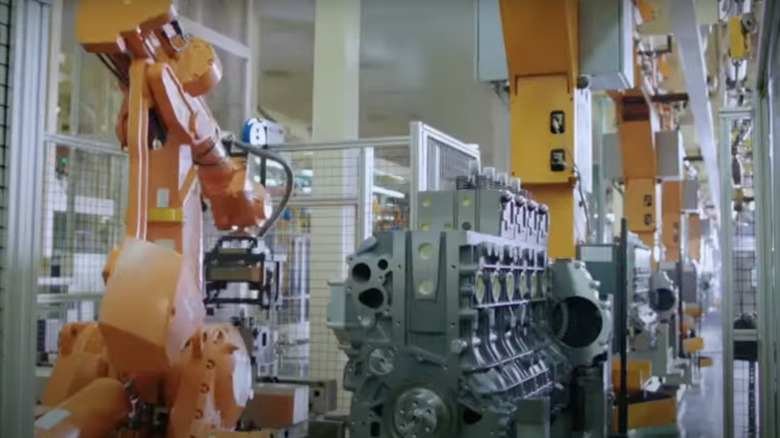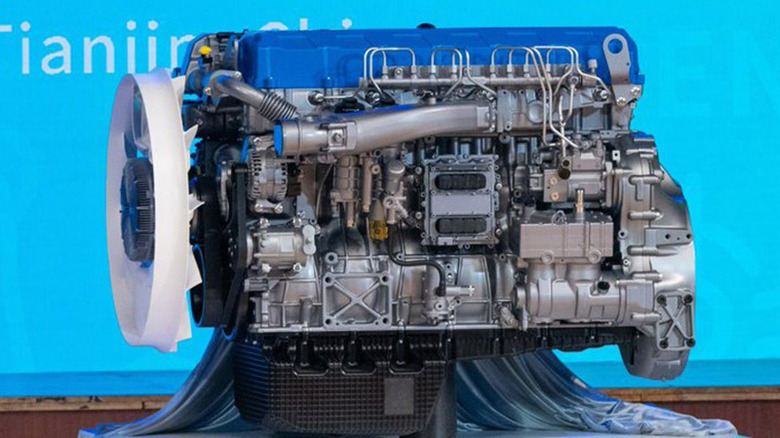All About China's New Record-Setting Diesel Engine
Diesel engines differ from gasoline engines in several key ways regarding design and operation. Diesel engines waste less energy than their gas counterparts because they combust air using compression and don't require fuel to be ignited by a spark plug. A diesel engine produces more torque than gasoline engines, making them better for heavy-duty applications. Diesel engines are also built stronger than gas engines to handle the greater internal compression.
All engines lose some of the fuel's potential energy in the form of dissipated heat. The ratio of a fuel's energy that an engine can turn into kinetic energy is called thermal efficiency, and is higher for diesel engines than their gasoline counterparts. Gas engines generally use about 20-35% of the potential energy of fuel burned and lose the rest as ambient heat or exhaust, while a typical diesel engine operates at a thermal efficiency of about 46%.
One company has been steadily raising the bar for thermal efficiency in diesel engines over the past few years. In September 2020, Weichai Power in Weifang, China produced an engine that set a new standard with a thermal efficiency of just over 50%. Weichai broke the 51% barrier in January 2022 and hit 52.28% that November, an accomplishment that meant a 12% reduction in emissions and the amount of fuel burned. Weichai wasn't done pushing the thermal efficiency envelope, though. At the World Congress on Internal Combustion Engines in Tianjin just a few days ago, Weichai demonstrated an engine with a remarkable thermal efficiency of 53.09%.
Weichai has more than 200 patents for its new diesel engine
This bump increased fuel savings and reduced emissions by 14% compared to a typical diesel engine, which could save more than 30 billion tons of fuel worldwide each year and reduce emissions by almost 100 million tons. During the almost year and a half the engine was in development, Weichai's engineering team secured more than 200 new patents for the technology it used. They included innovations in fuel and air delivery, fuel combustion, and reduction in the engine's internal friction. The engine is expected to be used in multiple industries including agriculture, marine transportation, power generation, and construction.
Weichai was founded in 2002 and has branches in the United States, Luxembourg, and India. It sells its engines, transmissions, axles, tractors, and bulldozers in over 150 countries and earned more than $30 billion last year. Weichai's record-breaking engine's performance was certified by the German consulting firm TUV and the China Automotive Technology and Research Center (CATARC). Weichai's website credited "open cooperation with the world's top universities and research institutes" and noted that "these achievements not only belong to Weichai, but also to the global industry."

